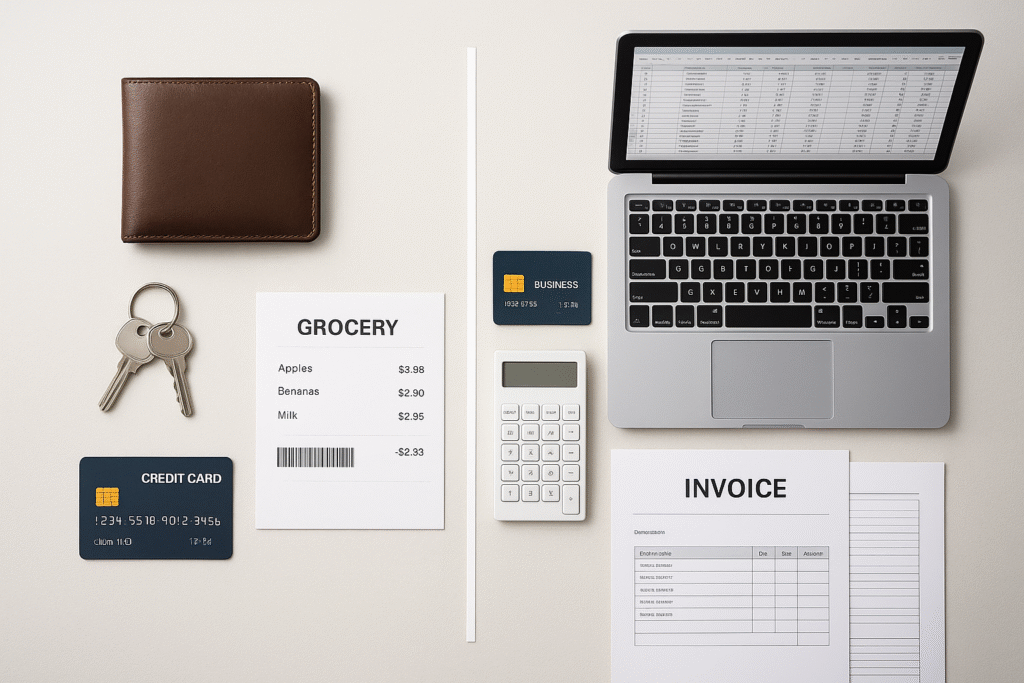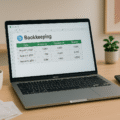Introduction
Every business owner has been there: you’re at the checkout counter, the wrong card slips out, and suddenly your personal and business expenses are tangled. At first glance, it feels harmless. But here’s the truth—mixing personal and business finances is one of the costliest mistakes you can make as an entrepreneur.
Not only does it blur financial records, but it can also invite tax penalties, legal risks, and even damage your credibility with investors. In this guide, we’ll break down exactly why mixing personal and business finances is a bad idea, and more importantly, how to avoid it.
Table of Contents
Why Separating Finances Matters
Think of your business as a separate living, breathing entity. It has its own income, expenses, and obligations. By mixing personal and business finances, you distort that clarity, leaving yourself vulnerable to errors, audits, and legal headaches. Clear separation creates accurate books, protects your personal assets, and boosts your professional image.
Consequences of Mixing Personal and Business Finances
1. Confusing Financial Records
When personal and business funds mingle, bookkeeping becomes messy. Suddenly, it’s unclear whether that Amazon purchase was a business supply or a personal splurge. This confusion makes it nearly impossible to measure real profit or control cash flow—leaving you in the dark about your company’s true financial health.
2. Tax Complications
Tax season thrives on accuracy. The IRS (and other tax authorities) expect precise records to support business deductions. Mixing personal and business finances means blurred receipts, questionable deductions, and missed opportunities for legitimate write-offs. Worse, it raises red flags that can trigger audits—something every business owner wants to avoid.
3. Legal Risks and Loss of Liability Protection
If your company is structured as an LLC or corporation, mixing funds could be catastrophic. Courts may apply the “piercing the corporate veil” principle, treating you and your business as one entity. That means your personal savings, home, or car could be at risk if your business faces a lawsuit or debt claim.
4. Impact on Business Credibility and Financing
Imagine approaching a bank for a loan but presenting bank statements filled with grocery runs, Netflix subscriptions, and office expenses. That doesn’t scream professionalism. Lenders and investors want clean, well-managed finances. Mixing accounts can damage your credibility and lower your chances of securing loans or outside funding.
5. Increased Accounting Costs and Errors
Accountants aren’t magicians. Untangling mixed finances means more hours, higher fees, and greater potential for mistakes. Even the best bookkeepers can miss entries when sifting through commingled records, leading to inaccurate statements and flawed business decisions.
Best Practices to Keep Finances Separate

- Open Separate Bank Accounts and Credit Cards
- Use one exclusively for personal use and another strictly for business. This is the simplest, most effective way to maintain clarity.
- Use one exclusively for personal use and another strictly for business. This is the simplest, most effective way to maintain clarity.
- Create Expense Policies
- If you accidentally use personal funds for business, reimburse yourself through a structured process instead of leaving it buried in mixed records.
- If you accidentally use personal funds for business, reimburse yourself through a structured process instead of leaving it buried in mixed records.
- Use Dedicated Accounting Software
- Platforms like QuickBooks, ZohoBooks, Odoo, or even Excel templates tailored for small businesses ensure every transaction is recorded and reconciled correctly.
- Platforms like QuickBooks, ZohoBooks, Odoo, or even Excel templates tailored for small businesses ensure every transaction is recorded and reconciled correctly.
- Keep Organized Records
- Save receipts digitally or physically. A well-labeled receipt today could save you hours of confusion during tax season.
- Save receipts digitally or physically. A well-labeled receipt today could save you hours of confusion during tax season.
- Consult a CPA or Financial Advisor
- Professionals help ensure compliance with tax laws, maximize deductions, and keep your books squeaky clean.
- Professionals help ensure compliance with tax laws, maximize deductions, and keep your books squeaky clean.
Long-Term Benefits of Keeping Finances Separate
- Simpler Tax Filing: No more guessing games over which expenses qualify.
- Better Decision-Making: Clear records help you plan for growth.
- Increased Trust: Investors, banks, and vendors take you more seriously.
- Personal Protection: Your home, car, and personal savings remain safe if legal trouble hits.
- Peace of Mind: Separation reduces stress and uncertainty—giving you space to focus on growth.
Common Mistakes to Avoid
Even seasoned entrepreneurs fall into these traps:
- Paying for business expenses with personal credit cards.
- Covering personal bills using the business account.
- Ignoring reimbursements when funds cross over.
- Relying on “mental notes” instead of documented records.
Avoid these habits, and you’re already one step ahead of most small business owners.
Resources for Further Reading – Mixing personal and business finances
If you’d like to dig deeper, these trusted resources expand on why mixing personal and business finances can backfire:
- Vencru: Separating Business and Personal Finances
- FasterCapital: Mixing Personal and Business Expenses
- Stellar Bank: Why It’s Important to Separate Finances
- Bench: Basics of Small Business Accounting
- Pipe: Risks of Mixing Personal and Business Expenses
- Am I Doing This Bookkeeping Thing Right
Conclusion
Mixing personal and business finances may seem harmless in the short term, but the long-term costs—legal risks, higher taxes, damaged credibility—can sink even the strongest business. By taking small steps now—opening separate accounts, using accounting software, and keeping meticulous records—you’re not just protecting your company, you’re securing your future.
📌 Ready to clean up your finances? Start today by opening a dedicated business account or consulting a Bookiqo.com bookkeeping expert to set your business on the right track.











